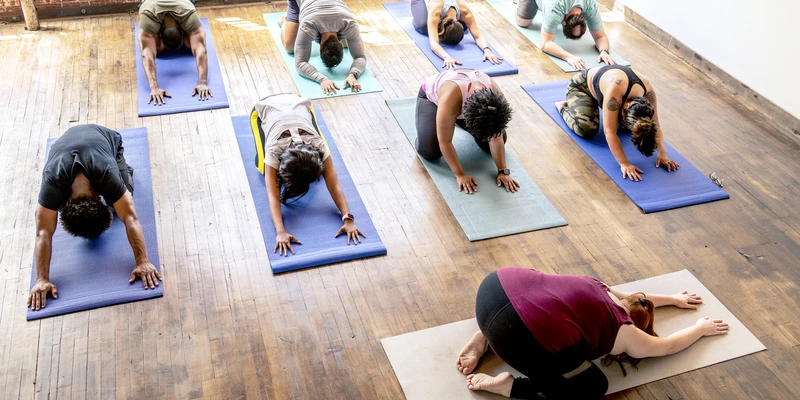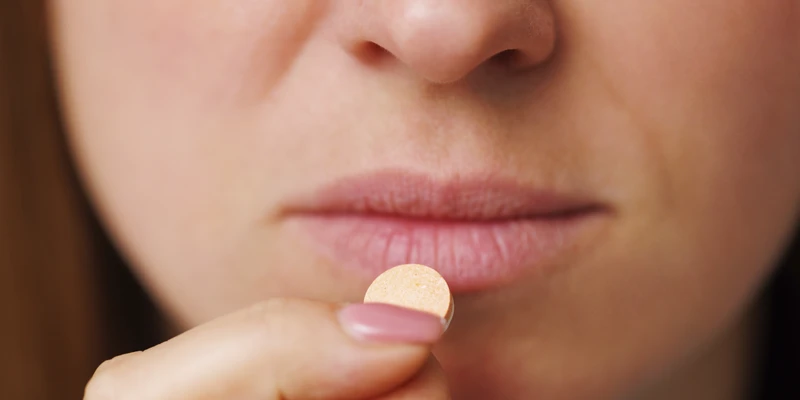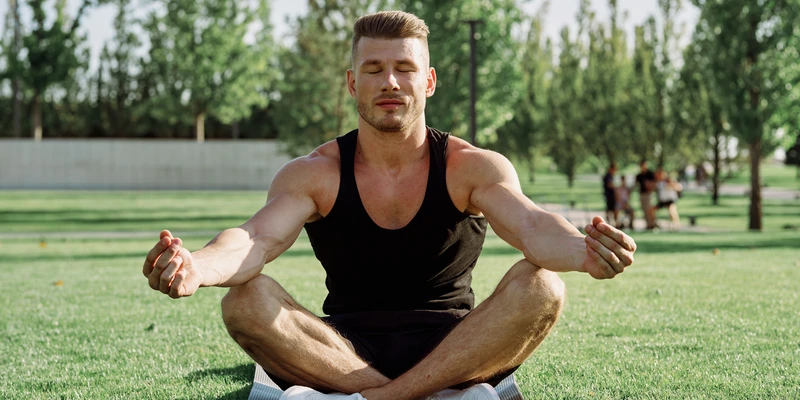Benzodiazepine addiction is a serious condition that affects your mind and body. Holistic benzodiazepine addiction treatment considers your physical, mental, and emotional health together instead of only focusing on the drug use itself. 
Understanding Benzodiazepine Addiction and Dependence
Benzodiazepines are prescribed for conditions such as anxiety, panic disorders, and seizures. When used long-term or without proper medical guidance, these drugs can lead to misuse, dependence, and serious health risks.
Nature of Benzodiazepines
Benzodiazepines, often called benzos, are a type of medication known for their calming effects. They work by acting on receptors in your brain that reduce nervous system activity. You might recognise names like Xanax (alprazolam), Klonopin (clonazepam), and Ativan (lorazepam).
Doctors prescribe these medicines to treat anxiety, insomnia, and muscle spasms. Benzodiazepines help manage symptoms by slowing down brain function, which can make you feel calmer or sleepy. However, these effects also increase the risk of dependence if taken regularly or in high doses.
Over time, your body can get used to benzodiazepines, leading you to need higher doses to feel the same effects. This is known as tolerance and can set the stage for addiction or physical dependence.
Causes of Benzodiazepine Misuse
Several factors can lead to the misuse of benzodiazepines. Some people take more than the prescribed amount to manage stress, anxiety, or sleep problems. Others may take it for recreational effects, chasing a sense of relaxation or euphoria.
Key factors contributing to misuse include:
- Long-term prescriptions for chronic anxiety or pain
- Using benzodiazepines without a prescription
- Combining benzos with alcohol or other drugs
- Lack of awareness about risks
People with a history of substance abuse or mental health problems are more likely to misuse these drugs. Over time, misuse can turn into addiction and dependence that require professional treatment and support.
Risks of Long-Term Use
Taking benzodiazepines for a long time carries significant risks. The body becomes dependent, making it very hard to stop without withdrawal symptoms, such as anxiety, insomnia, and even seizures.
These risks make it important to seek help if you have been using benzos for a long period:
- Cognitive decline: Refers to worsening memory, difficulty concentrating, and slower thinking, which can interfere with daily tasks and reduce overall mental sharpness.
- Physical Dependence: Occurs when the body adapts to the drug and needs it to feel normal, often resulting in withdrawal symptoms when the drug is reduced or stopped.
- Increased Falls: The drug can impair coordination and balance, especially in older adults, leading to a significantly higher risk of slips, trips, and serious injuries like fractures.
- Tolerance: Over time, the body becomes less responsive to the same dose, requiring higher amounts to achieve the desired effect, which increases overall drug exposure and risk.
- Addiction: Characterised by a strong compulsion to continue using the drug despite knowing it causes harm, making it difficult to quit without professional help.

Holistic Approaches to Benzodiazepine Addiction Treatment
Holistic treatment for benzodiazepine addiction looks at your physical, mental, and emotional needs. This approach combines medical care, therapy, nutrition, and mind-body techniques to support your long-term recovery.
Personalised Addiction Recovery Plans
A personalised recovery plan is tailored to your unique situation and history with benzodiazepines. It begins with a thorough assessment, which considers your physical health, mental well-being, social environment, and any co-occurring conditions.
Your plan may include medical detox, gradual dose reduction, and medication if needed. You will likely work closely with a team, such as doctors, therapists, and nutritionists, to adjust your plan as you progress. Keeping your needs at the centre of care can improve your chances of staying drug-free.
Support often includes regular check-ins, feedback, and goal-setting. This helps keep you on track and makes recovery feel more manageable. Addiction services and rehab clinics in the UK offer diverse support options to match your specific situation.
Role of Psychotherapy and CBT
Psychotherapy allows you to explore the emotional and behavioural causes behind benzodiazepine abuse. Cognitive Behavioural Therapy, or CBT, is a common method for helping you change negative thought patterns and behaviours linked to benzodiazepine use.
CBT helps you recognise triggers that lead to cravings. You learn practical coping skills, such as ways to handle stress or avoid situations that can lead to relapse. Therapy also teaches you how to manage anxiety without relying on medication.
Working with a trained therapist provides a safe space to discuss your fears and make progress. Many clinics offer both individual and group sessions, helping you build new, healthy habits as part of your addiction recovery.
Complementary Therapies and Nutritional Support
Complementary therapies focus on treating your whole body and mind. These may include acupuncture, massage, or art therapy. Such therapies can help reduce anxiety, promote relaxation, and improve your overall quality of life during recovery.
Nutrition plays a key role when your body is healing from drug dependence. Eating a balanced diet with enough vitamins, minerals, and fluids supports brain health, boosts your immune system, and helps restore energy. Some people benefit from nutritional supplements if they have deficiencies caused by drug use or withdrawal.
Nutritionists and therapists may work together to create personalised meal plans or recommend supplements tailored to your specific needs. This support helps your body recover and strengthens your efforts to stay away from benzodiazepines.
Mind-Body Practices in Recovery
Mind-body practices connect your physical health and mental state. Activities such as yoga, meditation, and breathing exercises are popular in various addiction treatment centres. These help reduce stress and anxiety, which are common triggers for relapse.
Techniques such as mindfulness make you more aware of your thoughts and feelings, letting you respond rather than react to cravings. Regular practice helps many people feel calmer and more in control.
You may also find group classes or workshops, which add a social support aspect to your recovery. Mind-body methods are used alongside other holistic therapies in addiction recovery, making it easier to cope with urges and manage daily stress.

Withdrawal and Detoxification Management
Benzodiazepine detox and withdrawal can be uncomfortable and sometimes dangerous if not managed correctly. Detoxification should be carefully planned, with safety and support in place to ensure a smooth and safe process.
Recognising Withdrawal Symptoms
You may experience a range of withdrawal symptoms if you stop or reduce benzodiazepine use. Common symptoms include anxiety, irritability, insomnia, muscle aches, and sweating. Some people may have nausea, headaches, blurred vision, or tremors.
More severe symptoms can occur, such as confusion, paranoia, panic attacks, or seizures. This is known as benzodiazepine withdrawal syndrome. Severe withdrawal is a medical emergency; therefore, it is essential to recognise when symptoms become urgent.
Early recognition and monitoring of symptoms can help you get proper support. If you notice confusion, chest pain, or seizures, seek help right away. A clear understanding of potential withdrawal effects enables you to prepare for the process.
Safe Detox Strategies
A safe benzo detox often involves gradually reducing the dose rather than stopping suddenly. This is known as tapering. Slow dose reduction helps to lessen withdrawal symptoms and lower the risk of serious complications.
Doctors may suggest switching from a short-acting to a longer-acting benzodiazepine to make the taper safer and more comfortable. A typical taper lasts several weeks or sometimes months, depending on how long you have been taking benzodiazepines, your current dose, and your health needs.
Structured support, such as counselling or group therapy, may make detox easier. Some people find that relaxation techniques and healthy routines help manage anxiety and sleep problems during withdrawal.
Medical Supervision and Risk Reduction
Detoxification from benzodiazepines should happen under the care of a healthcare professional. Medical supervision helps monitor your progress and quickly spot any serious symptoms that may develop. This support is especially important if you have a history of seizures, other medical problems, or use high doses.
Doctors can adjust the tapering plan based on how you are feeling. Sometimes, medicines may be used to manage specific withdrawal symptoms, like anti-nausea drugs or other supportive care.
Access to services or specialist clinics is important for your safety and comfort.
Regular check-ups and clear communication with your medical team reduce risks and increase your chances of a successful detox.

Co-Occurring Disorders and Aftercare Support
You may face mental health conditions like anxiety, depression, or sleep problems alongside benzodiazepine addiction. Treating these co-occurring disorders and having strong aftercare support increases your chances of stable, long-term recovery.
Managing Anxiety and Sleep Disorders
Benzodiazepine addiction often overlaps with anxiety disorders and sleep problems such as insomnia. Your treatment plan should include therapies that target both your substance use and your mental health. This may involve talking therapies like cognitive behavioural therapy (CBT) for anxiety or mindfulness-based strategies for managing stress.
For sleep disorders, a routine including regular sleep hours, relaxation exercises, and limiting screen time before bed can improve sleep quality. Support groups and professional help also play an important role. Medications may sometimes be considered, but non-drug methods are often advised to avoid further dependency.
Holistic benzodiazepine addiction treatment usually focuses on helping you break the cycle of poor sleep and constant anxiety. These services also teach coping skills to reduce the risk of using drugs as self-medication.
Addressing Depression and Cognitive Impairment
Depression is common when you stop taking benzodiazepines. Your treatment should include regular mental health check-ins and support from therapists or medical staff. Group therapy and one-to-one support can help you manage low moods and feelings of hopelessness.
Cognitive impairment, such as trouble concentrating or remembering things, may also happen during recovery. Brain training activities, such as puzzles and memory games, as well as maintaining mental activity, can aid in improvement. Nutrition advice and gentle exercise help your brain recover.
In some cases, residential rehab treatments offer close monitoring and tailored support for depression and cognitive issues. You may benefit from being in a calm, structured environment where professionals recognise and treat these effects.
Preventing Relapse and Ensuring Long-Term Recovery
Relapse is a risk for anyone recovering from benzodiazepine misuse. Aftercare support is vital to help you stay substance-free. Good aftercare plans include regular check-ins, counselling, and peer support groups. Specialised services in the UK can connect you with local resources and ongoing therapy.
Developing a relapse prevention plan allows you to identify triggers and create strategies for handling stress or cravings. Some programmes offer workshops that teach skills for managing daily challenges and rebuilding routines.
Family involvement and community-based resources provide extra layers of support. Continuing care is essential to ensure your ongoing progress and well-being.
Get Help for Benzodiazepine Addiction
If you or someone you love is struggling with benzodiazepine addiction, Sierra Recovery is here to help. Our comprehensive treatment programme is designed to address both the physical and psychological dependence that makes quitting so difficult.
We understand the signs of benzodiazepine addiction and offer personalised care in a safe, supportive environment. Do not wait until things get worse. Reach out today and take the first step toward reclaiming your health and peace of mind.
Frequently Asked Questions
What approaches are available for managing benzodiazepine dependence?
You can find several options for managing benzodiazepine dependence. These include medical detox, cognitive behavioural therapy, support groups, and lifestyle changes. Clinics may also employ holistic methods, such as nutrition and mindfulness, in conjunction with traditional treatments.
Which natural remedies can assist in the recovery from benzodiazepine use?
Some people find natural remedies helpful during their recovery. These might include regular exercise, meditation, yoga, and a balanced diet. Herbal supplements, when approved by a healthcare professional, may also support the body.
What are the steps for safely discontinuing benzodiazepines?
Tapering benzodiazepines slowly under medical supervision is the safest method. Your doctor will create a schedule to reduce your dose gradually. This helps reduce withdrawal symptoms and health risks. Never stop these medicines suddenly or without guidance, as this can be dangerous.
Can the long-term effects of benzodiazepines be reversed, and how?
Stopping benzodiazepines can help your body heal, but some long-term effects might take time to improve. There may be progress in thinking skills and mood, particularly with ongoing therapy and a healthy lifestyle. In some cases, not all effects completely go away.
What role does holistic therapy play in the treatment of benzodiazepine addiction?
This type of therapy focuses on the whole person. Treatment may include therapy for mental health, nutritional support, mindfulness, and stress management. It's an approach that aims to promote balance and recovery beyond just stopping drug use.
How does one address the psychological aspects of benzodiazepine withdrawal?
You can manage psychological symptoms, such as anxiety or depression, with therapy, support groups, and mindfulness practices. Cognitive behavioural therapy is often recommended to help change negative thought patterns.






